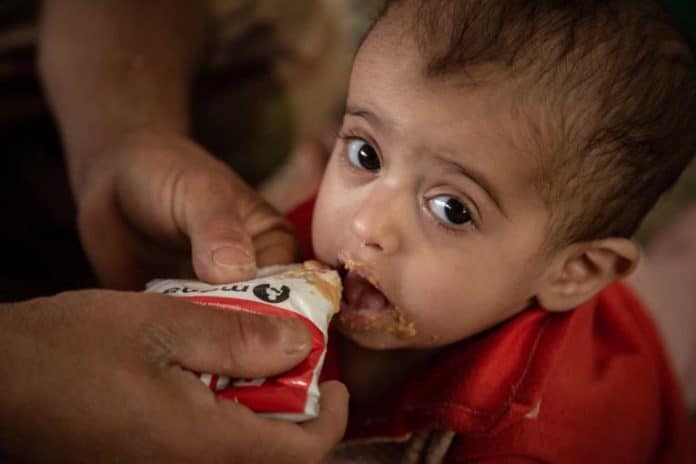The first-ever European Humanitarian Forum, which gathers policy makers, humanitarian partners and stakeholders for a dialogue on humanitarian policy and strategy, kicked off in Brussels on Monday March 21 and runs until Wednesday March 23 in a hybrid format. At the European Humanitarian Forum EU ministers will meet to discuss the Ukrainian crisis and food insecurity in the world. A topic which grows more urgent every day.
Yesterday, the French minister of Foreign Affairs Jean-Yves Le Drian warned the EU that the war in Ukraine could commence an “extremely serious” global food crisis.
Russia is the world’s largest exporter of wheat and accounts for more than 18% of international exports. According to the Observatory of Economic Complexity, Russia and Ukraine exported in total 25.4% of the world’s wheat. Half of the wheat supply are imported by Africa, where Egypt is the world’s largest importer. All food exportation has stopped in Ukraine and the war will put a stop to food production this year.
Arab nations and African countries at risk
Tunisia depends highly on wheat with an import from Ukraine of 50%. The recent years, Tunisia has struggled with unemployment, inflation and public debt. Therefore, the country is deeply vulnerable to shocks in the economy.
Many other countries in Africa and numerous Arab nations are worried about ripple effects as wheat prices go up. Countries, just like Tunisia, that are already facing fragile economies, conflict and food shortage.

Yemen has been in war since 2014 and is dependent on bread production. 23 million Yemenis face hunger, disease and other life-threatening risks and it is only getting worse.
The Lebanese economy is in crisis with sky high inflation and usually the country imports more than half its wheat from Ukraine. The Lebanese Economy and Trade Minister, Amin Salam, states that Lebanon has a wheat supply for “a month, or a month and a half”.
Even before the war in Ukraine, the prices in Egypt had risen with 80% between April 2020 and December 2021. The halt of wheat production in Ukraine will push Egypt into an even bigger food insecurity than before.
In vulnerable countries with a history of political unrest evoked by fragile economies and unaffordable food, the risks are clear.
“We must take charge of this new situation quickly,” Le Drian said at a meeting of EU foreign ministers in Brussels. Le Drian encouraged the EU to work closely with international agencies, partners and NGOs.
Because of scarcity, war, the pandemic’s economic aftershocks and crude oil prices near a 13-year high, WFP is already paying 30 percent more for food than it was in 2019,” said WFP chief David Beasley
“If the Black Sea transport corridors are disrupted further by this burgeoning war, transport prices will spike in lockstep, doubling or even tripling.”
He added: “Very soon, surviving Ukrainian farmers will be trying to seed their spring fields in some of the world’s richest earth, from where WFP had hitherto drawn more than half our wheat.” But the war will likely hinder that.
Read more here:
First-ever European Humanitarian Forum opens in Brussels (unric.org)




